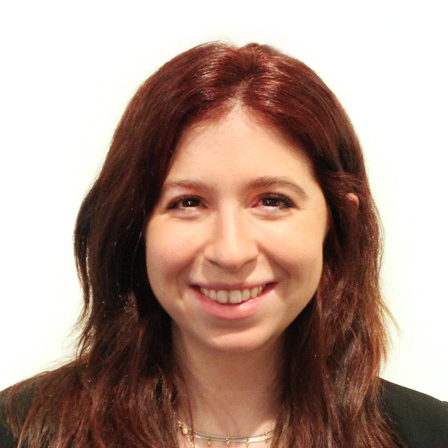
Multipurpose Skincare Brand The Better Skin Co. Shutters After 9 Years
The Better Skin Co., a skincare brand with multipurpose, gender-neutral products once available at Ulta Beauty, Bloomingdale’s, Costco and Urban Outfitters, is closing.
Announced on Facebook, the closure comes nine months after the brand halted marketing and advertising and three years after it pivoted from retail to online-only distribution through its website and Amazon. During the pandemic, its wholesale business fell apart as brick-and-mortar retail operations paused and sales declined. Still, it maintained a relationship with Costco International until 2023. Other retailers that previously sold The Better Skin Co. include Dermstore, American Eagle Outfitters and HSN.
“When we started, you could figure out the algorithm, and you could figure out how to advertise, and then you could really find your customer and get to them,” says Murphy Bishop II, co-founder and CEO of The Better Skin Co. “Now, it’s a constant trope of finding them and getting to them, which means you have to spend more money.”
Hobbled by the high costs of ads essential to cut through the online noise, The Better Skin Co.’s sales shrunk to under $1 million in 2023 from about $20 million in 2019, when 90% of its sales were from retail. Bishop initially pondered relaunching The Better Skin Co.’s three bestsellers—$36 Mirakle Cream, $38 Epik C Serum and $34 Lava Magik—with new and improved formulas on Amazon before ultimately deciding to shutter it. Dec. 20 is the last day to buy products on its site. Its Amazon storefront is live, but there’s scant inventory left on the e-commerce platform.
“I decided I wanted to let it go before I had to let it go,” says Bishop. “I didn’t want to get to a point of bankruptcy or to a point of products not being good or us not being able to service the customer.”
The Better Skin Co.’s closure occurs as a cascade of indie beauty brands exit the market due to fierce competition, the rising costs of business, shifting consumer preferences and a challenging retail landscape. Ingredients, LOLI Beauty, Consonant Skin+Care, Supernal, Coloured Raine, Strange Bird and SunKiss Organics are just a few of the brands that have closed this year or announced closures.
The Better Skin Co. started with a single product—Mirakle Cream—and its assortment over the years increased to around 17 products priced from $18 to $38. A veteran of Estée Lauder, Victoria Secret Beauty and Butter London, Bishop launched the brand with aesthetician Natalya Rachkova with $25,000 in 2015. Formulated by Rachkova, its Mirakle Cream moisturizer was marketed as “genius in a jar” for its ability to reduce the appearance of fine lines and hydrate the skin.
The Better Skin Co. quickly received notice, snagging press mentions on “The Wendy Williams Show,” “Today” Refinery29, Stylecaster and The Huffington Post. In 2018, it collaborated with “Orange Is the New Black” actress Jessica Pimental. Bishop credits Robin Tolkan-Doyle, who handled its press outreach, for the spotlight the brand garnered.

From the outset, Bishop intended to sell The Better Skin Co. and, within three years of launching, fielded interest from potential acquirers, although acquisition discussions dissipated following the pandemic. In 2019, when its sales were at their peak, its profit margins remained thin as it made large-scale retail investments. The Better Skin Co. never raised outside funds.
“Every dime we got, we put back into [retail] because we wanted to make sure that it worked,” says Bishop. “So, even though we might get a $500,000 purchase order, we put that money back and then we added money on top of that because we wanted the assurance that it would work.”
Reflecting on The Better Skin Co.’s history, Bishop identifies its positioning, agility and marketing prowess as key strengths. A key weakness was failing to establish a balance between sales from retail and digital distribution, particularly at the beginning of the brand, when Bishop believes it should’ve been more digitally relevant.
“Even though we had a good website business, it never matched our retail business,” he says. “In today’s world, your website needs to be your everything. We learned from COVID that you can’t count on anyone but yourself.”
Bishop concludes as well that The Better Skin Co. should’ve stuck to its multipurpose ethos, which got muddled after it launched on HSN in 2018 and agreed to practically every influencer partnership that came its way. In addition, he says fundraising should’ve been a priority for The Better Skin Co., particularly when efforts to sell the brand fizzled. He explains, “We were making sales and running a business. I simply could not fit it in. Also, I had hoped I wouldn’t need to do it.”
In 2019, Bishop relocated from Los Angeles to Mobile, Alabama, his hometown, and has flirted with entering hospitality, but is turning his attention back to beauty as he closes The Better Skin Co. and weighs his next move. Comparing indie brands now with The Better Skin Co.’s early days, he says, “I still believe you need a great story, so you can have great marketing, but you’ve got to have money to get it out there. That’s the biggest difference.”





Leave a Reply
You must be logged in to post a comment.